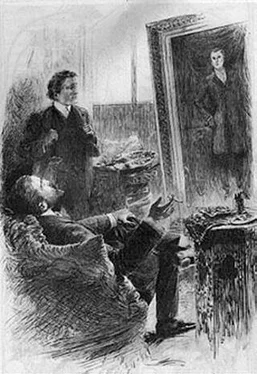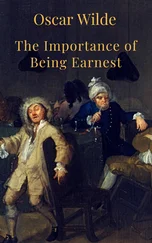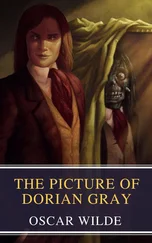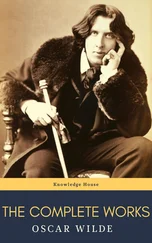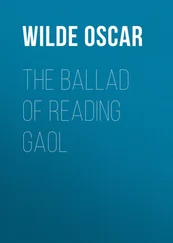Oscar Wilde - The Picture of Dorian Gray
Здесь есть возможность читать онлайн «Oscar Wilde - The Picture of Dorian Gray» — ознакомительный отрывок электронной книги совершенно бесплатно, а после прочтения отрывка купить полную версию. В некоторых случаях можно слушать аудио, скачать через торрент в формате fb2 и присутствует краткое содержание. Город: 20 Cambridge Drive, London SE12 8AJ, UK, Год выпуска: 1998, Издательство: © The Electric Book Company Ltd., Жанр: Классическая проза, на английском языке. Описание произведения, (предисловие) а так же отзывы посетителей доступны на портале библиотеки ЛибКат.
- Название:The Picture of Dorian Gray
- Автор:
- Издательство:© The Electric Book Company Ltd.
- Жанр:
- Год:1998
- Город:20 Cambridge Drive, London SE12 8AJ, UK
- ISBN:нет данных
- Рейтинг книги:3 / 5. Голосов: 1
-
Избранное:Добавить в избранное
- Отзывы:
-
Ваша оценка:
- 60
- 1
- 2
- 3
- 4
- 5
The Picture of Dorian Gray: краткое содержание, описание и аннотация
Предлагаем к чтению аннотацию, описание, краткое содержание или предисловие (зависит от того, что написал сам автор книги «The Picture of Dorian Gray»). Если вы не нашли необходимую информацию о книге — напишите в комментариях, мы постараемся отыскать её.
The Picture of Dorian Gray — читать онлайн ознакомительный отрывок
Ниже представлен текст книги, разбитый по страницам. Система сохранения места последней прочитанной страницы, позволяет с удобством читать онлайн бесплатно книгу «The Picture of Dorian Gray», без необходимости каждый раз заново искать на чём Вы остановились. Поставьте закладку, и сможете в любой момент перейти на страницу, на которой закончили чтение.
Интервал:
Закладка:
Lord Henry smiled and looked at Dorian Gray. “Am I to go, Mr. Gray?” he asked.
“Oh, please don’t, Lord Henry. I see that Basil is in one of his sulky moods, and I can’t bear him when he sulks. Besides, I want you to tell me why I should not go in for philanthropy.”
“I don’t know that I shall tell you that, Mr. Gray. It is so tedious a subject that one would have to talk seriously about it. But I certainly shall not run away, now that you have asked me to stop.
You don’t really mind, Basil, do you? You have often told me that you liked your sitters to have some one to chat to.”
Hallward bit his lip. “If Dorian wishes it, of course you must stay. Dorian’s whims are laws to everybody, except himself.”
Lord Henry took up his hat and gloves. “You are very pressing, Basil, but I am afraid I must go. I have promised to meet a man at the Orleans. Good-bye, Mr. Gray. Come and see me some afternoon in Curzon Street. I am nearly always at home at five o’clock. Write to me when you are coming. I should be sorry to miss you.”
“Basil,” cried Dorian Gray, “if Lord Henry Wotton goes, I shall go, too. You never open your lips while you are painting, and it is horribly dull standing on a platform and trying to look pleasant. Ask him to stay. I insist upon it.”
“Stay, Harry, to oblige Dorian, and to oblige me,” said Hallward, gazing intently at his picture. “It is quite true, I never talk when I am working, and never listen either, and it must be dreadfully tedious for my unfortunate sitters. I beg you to stay.”
“But what about my man at the Orleans?”
The painter laughed. “I don’t think there will be any difficulty about that. Sit down again, Harry. And now, Dorian, get up on the platform, and don’t move about too much, or pay any attention to what Lord Henry says. He has a very bad influence over all his friends, with the single exception of myself.”
Dorian Gray stepped up on the dais with the air of a young Greek martyr, and made a little moue of discontent to Lord Henry, to whom he had rather taken a fancy. He was so unlike Basil. They made a delightful contrast. And he had such a beautiful voice. After a few moments he said to him, “Have you really a very bad influence, Lord Henry? As bad as Basil says?”
“There is no such thing as a good influence, Mr. Gray. All influence is immoral—immoral from the scientific point of view.”
“Why?”
“Because to influence a person is to give him one’s own soul. He does not think his natural thoughts, or burn with his natural passions. His virtues are not real to him. His sins, if there are such things as sins, are borrowed. He becomes an echo of some one else’s music, an actor of a part that has not been written for him. The aim of life is self-development. To realise one’s nature perfectly—that is what each of us is here for. People are afraid of themselves, nowadays. They have forgotten the highest of all duties, the duty that one owes to one’s self. Of course, they are charitable. They feed the hungry and clothe the beggar. But their own souls starve, and are naked. Courage has gone out of our race. Perhaps we never really had it. The terror of society, which is the basis of morals, the terror of God, which is the secret of religion—these are the two things that govern us. And yet—”
“Just turn your head a little more to the right, Dorian, like a good boy,” said the painter, deep in his work and conscious only that a look had come into the lad’s face that he had never seen there before.
“And yet,” continued Lord Henry, in his low, musical voice, and with that graceful wave of the hand that was always so characteristic of him, and that he had even in his Eton days, “I believe that if one man were to live out his life fully and completely, were to give form to every feeling, expression to every thought, reality to every dream—I believe that the world would gain such a fresh impulse of joy that we would forget all the maladies of mediaevalism, and return to the Hellenic ideal—to something finer, richer than the Hellenic ideal, it may be. But the bravest man amongst us is afraid of himself. The mutilation of the savage has its tragic survival in the self-denial that mars our lives. We are punished for our refusals. Every impulse that we strive to strangle broods in the mind and poisons us. The body sins once, and has done with its sin, for action is a mode of purification. Nothing remains then but the recollection of a pleasure, or the luxury of a regret. The only way to get rid of a temptation is to yield to it. Resist it, and your soul grows sick with longing for the things it has forbidden to itself, with desire for what its monstrous laws have made monstrous and unlawful. It has been said that the great events of the world take place in the brain. It is in the brain, and the brain only, that the great sins of the world take place also. You, Mr. Gray, you yourself, with your rose-red youth and your rose-white boyhood, you have had passions that have made you afraid, thoughts that have fined you with terror, day-dreams and sleeping dreams whose mere memory might stain your cheek with shame—”
“Stop!” faltered Dorian Gray, “stop! you bewilder me. I don’t know what to say. There is some answer to you, but I cannot find it. Don’t speak. Let me think. Or, rather, let me try not to think.”
For nearly ten minutes he stood there, motionless, with parted lips and eyes strangely bright. He was dimly conscious that entirely fresh influences were at work within him. Yet they seemed to him to have come really from himself. The few words that Basil’s friend had said to him—words spoken by chance, no doubt, and with wilful paradox in them—had touched some secret chord that had never been touched before, but that he felt was now vibrating and throbbing to curious pulses.
Music had stirred him like that. Music had troubled him many times. But music was not articulate. It was not a new world, but rather another chaos, that it created in us. Words! Mere words! How terrible they were! How clear, and vivid, and cruel! One could not escape from them. And yet what a subtle magic there was in them! They seemed to be able to give a plastic form to formless things, and to have a music of their own as sweet as that of viol or of lute. Mere words! Was there anything so real as words?
Yes; there had been things in his boyhood that he had not understood. He understood them now. Life suddenly became fiery-coloured to him. It seemed to him that he had been walking in fire. Why had he not known it?
With his subtle smile, Lord Henry watched him. He knew the precise psychological moment when to say nothing. He felt intensely interested. He was amazed at the sudden impression that his words had produced, and, remembering a book that he had read when he was sixteen, a book which had revealed to him much that he had not known before, he wondered whether Dorian Gray was passing through a similar experience. He had merely shot an arrow into the air. Had it hit the mark? How fascinating the lad was!
Hallward painted away with that marvellous bold touch of his, that had the true refinement and perfect delicacy that in art, at any rate comes only from strength. He was unconscious of the silence.
“Basil, I am tired of standing,” cried Dorian Gray suddenly. “I must go out and sit in the garden. The air is stifling here.”
“My dear fellow, I am so sorry. When I am painting, I can’t think of anything else. But you never sat better. You were perfectly still. And I have caught the effect I wanted—the half-parted lips and the bright look in the eyes. I don’t know what Harry has been saying to you, but he has certainly made you have the most wonderful expression. I suppose he has been paying you compliments. You mustn’t believe a word that he says.”
Читать дальшеИнтервал:
Закладка:
Похожие книги на «The Picture of Dorian Gray»
Представляем Вашему вниманию похожие книги на «The Picture of Dorian Gray» списком для выбора. Мы отобрали схожую по названию и смыслу литературу в надежде предоставить читателям больше вариантов отыскать новые, интересные, ещё непрочитанные произведения.
Обсуждение, отзывы о книге «The Picture of Dorian Gray» и просто собственные мнения читателей. Оставьте ваши комментарии, напишите, что Вы думаете о произведении, его смысле или главных героях. Укажите что конкретно понравилось, а что нет, и почему Вы так считаете.
